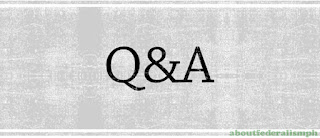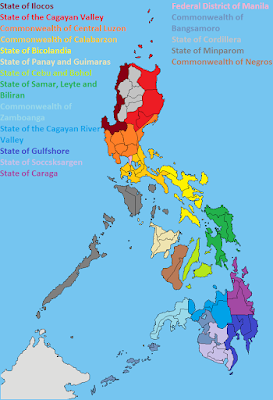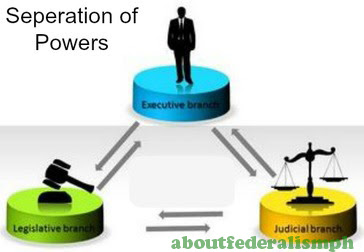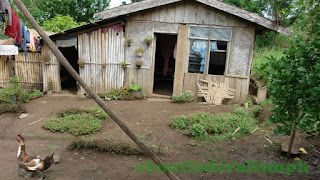
1. What type of federalism will we discuss in this presentation?
Answer:
The type of federalism that we will discuss is mostly about the federal system of the United States of America.



 As an illustration, upon the taking effect of the federal system, our existing local government code would still be applicable in every state but every state would have the power to revise or amend it. We could anticipate that there would be different sets of local government code in every state,
As an illustration, upon the taking effect of the federal system, our existing local government code would still be applicable in every state but every state would have the power to revise or amend it. We could anticipate that there would be different sets of local government code in every state, 

 Federalism will not result into the abolition of the national government and the latter may extend assistance to a poor province of a particular state. The issue about the poor provinces could be remedied by forming states in such a manner that not all poor provinces will be group into one state. The grouping should be strategic enough to include richer provinces so that a poor province will not be neglected by a particular state. (Please read again Question & Answer No. 13)
Federalism will not result into the abolition of the national government and the latter may extend assistance to a poor province of a particular state. The issue about the poor provinces could be remedied by forming states in such a manner that not all poor provinces will be group into one state. The grouping should be strategic enough to include richer provinces so that a poor province will not be neglected by a particular state. (Please read again Question & Answer No. 13)